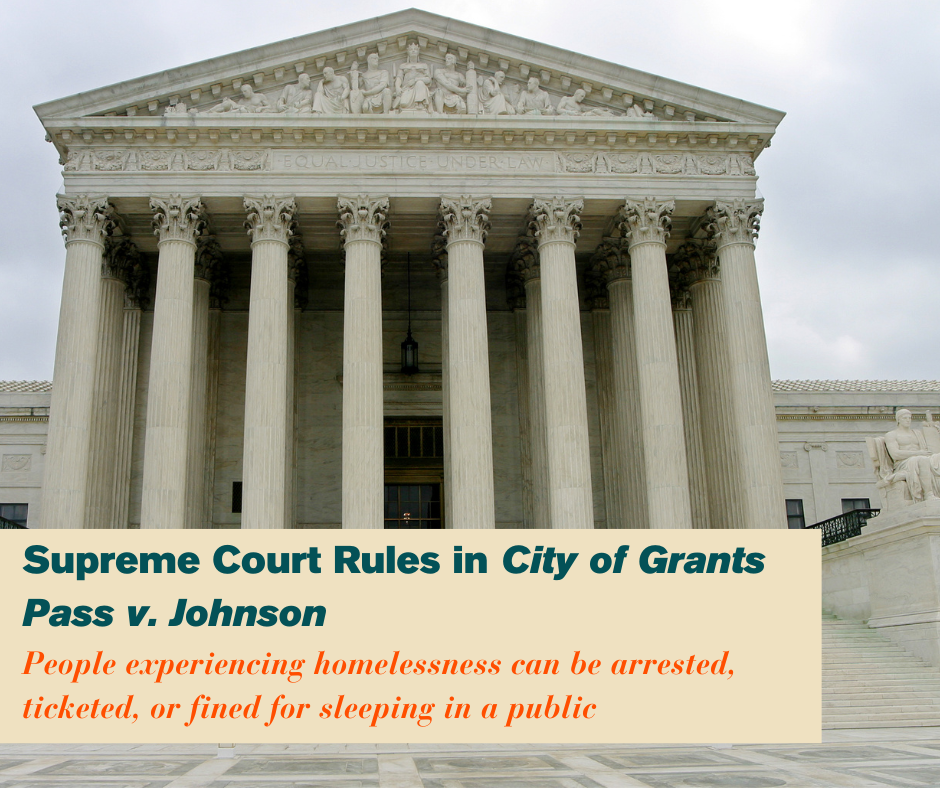Statement on Supreme Court Decision Allowing Cities to Criminalize Homelessness

We are angered and disappointed by today’s Supreme Court decision in City of Grants Pass, Oregon v. Johnson, which allows cities to arrest and ticket people experiencing homelessness for sleeping outside or in cars, even when no shelter or housing is available.
“Being homeless is not a crime,” says Housing Forward CEO Lynda Schueler. “We know from decades of experience that we cannot solve homelessness by policing it out of existence. Individuals and families experiencing homelessness need access to shelter and tailored housing interventions to mitigate the crisis of the loss of housing. To criminalize someone who does not have their basic needs meet is cruel and frankly unconscionable and completely misguided.”
In 2023, U.S. Homelessness increased 12 percent. And between 2018 and 2022, Cook County’s total homeless population increased by 26 percent. COVID-era funding, eviction protections and housing programs have largely ended, and we are beginning to see the ripple effects.
As homelessness has increased, we have also seen an increase in the criminalization of homelessness. According to the National Low Income Housing Coalition, more communities are implementing laws and policies which make it illegal for people to “stand, sit, sleep, or shelter themselves outside.”
This decision by the Supreme Court will have a widespread effect on tens of thousands of individuals experiencing homelessness and will create lasting repercussions in the way all cities and states are able to police homelessness.
“We cannot ignore homelessness by moving our unhoused neighbors out of view and into the justice system,” said Schueler. “The most effective approach to addressing homelessness is to provide people with immediate access to stable, affordable housing and supportive services. Housing Forward will continue to advocate for more affordable housing, more investment into prevention and diversion funding, and more coordinated response systems which respond directly to each individual housing crisis.”
For Media Inquiries Contact
Libby Foster
lfoster@housingforward.org
708.338.1724 ext 211



